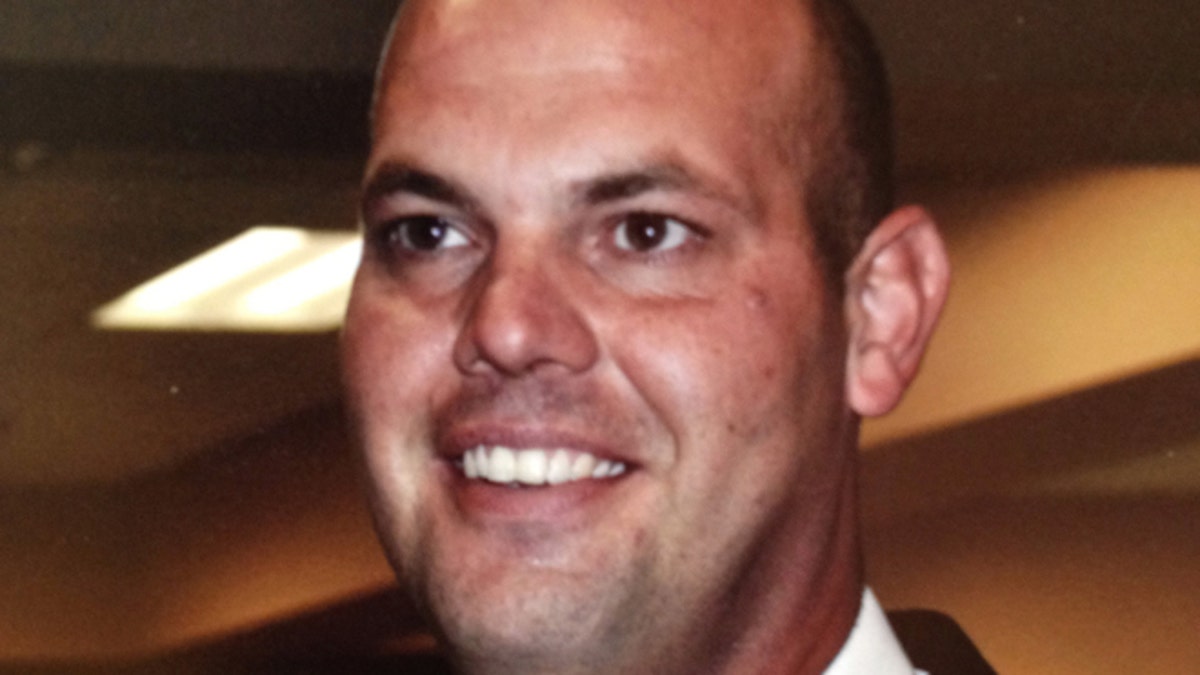
In this undated photo provided by Jenny Shultz is her brother, Tim Bowers, 32, of Decatur, Ind. Bowers, who fell about 16 feet from a tree and was left paralyzed from the shoulders down after a hunting accident. (AP Photo/Courtesy Jenny Schultz)
One day after a life-altering injury, Tim Bowers was presented the grim choice of whether he wanted to live or die.
When the avid outdoorsman was seriously hurt in a hunting accident on Saturday, doctors told Bowers he would be paralyzed and could be on a ventilator for the rest of his life. That grim diagnosis prompted an unusual request from relatives: Could Bowers be brought out of sedation to hear his prognosis and decide his own fate?
After getting approval from doctors, Bowers, 32, chose to take no extra measures to stay alive. He died Sunday, hours after his breathing tube was removed.
[pullquote]
"We just asked him, 'Do you want this?' And he shook his head emphatically no," sister Jenny Shultz said.
Bowers, who was often hunting or camping with his father on his northeastern Indiana farm, was deer hunting when he fell 16 feet from a tree and suffered a severe spinal injury that paralyzed him from the shoulders down. Doctors believed Bowers might never breathe on his own again.
[summary]
Courts have long upheld the rights of patients to refuse life support. But Bowers' case was unusual because it's often family members or surrogates — not the patient — who make end-of-life decisions.
Medical ethicists say it's rare for someone to decide on the spot to be removed from life support, especially so soon after an injury. But standard medical practice is to grant more autonomy to patients.
The heart-wrenching call to remove life support is more often left to relatives. Even when a patient has outlined his wishes for end-of-life care, the decision can tear families apart.
Shultz, an intensive care nurse in Las Vegas, has seen it happen in her job. But her medical training also meant she understood the severity of her brother's injuries. His C3, C4 and C5 vertebrae were crushed.
Though his brain was not injured, his body was irreparably broken. Surgery could fuse the vertebrae, but that would only allow Bowers to sit up. He would never walk or hold his baby. He might live the rest of his life in a rehabilitation hospital, relying on a machine to help him breathe.
Shultz said her brother — the youngest of four siblings — wanted to talk but couldn't because the ventilator tube was still in place. If the tube were removed, she told him, doctors were not sure how long he would live. But when she asked if he wanted the tube reinserted if he struggled, Bowers shook his head no.
Doctors asked Bowers the same questions and got the same responses. Then they removed the tube.
The last five hours of Bowers' life were spent with family and friends, about 75 of whom gathered in the hospital waiting room. They prayed and sang songs. Through it all, Shultz said, her brother never wavered in his decision to die.
"I just remember him saying so many times that he loved us all and that he lived a great life," Shultz said. "At one point, he was saying, 'I'm ready. I'm ready.'"
Patients often change their minds after they have had time to meet with spiritual advisers and family, said Art Caplan, director of the medical ethics program at New York University's Langone Medical Center in New York City.
Dr. Paul Helft, director of the Charles Warren Fairbanks Center for Medical Ethics in Indianapolis, said cases in which the patient makes the decision usually involve a debilitating illness such as Lou Gehrig's disease, which compromises the body but leaves the mind intact.
"We give patients autonomy to make all kinds of decisions about themselves," he said. "We've recognized that it's important that patients have the right to self-determination."
Shultz said her family had an idea what her brother would want because he had previously talked with his wife, Abbey, whom he married Aug. 3, about never wanting to spend his life in a wheelchair.
She knows that not everyone would make the same decision. But she's thankful her brother was able to decide for himself.
"No outcome was ever going to be the one that we really want," Shultz said. "But I felt that he did it on his terms in the end."
The Associated Press contributed to this report.

